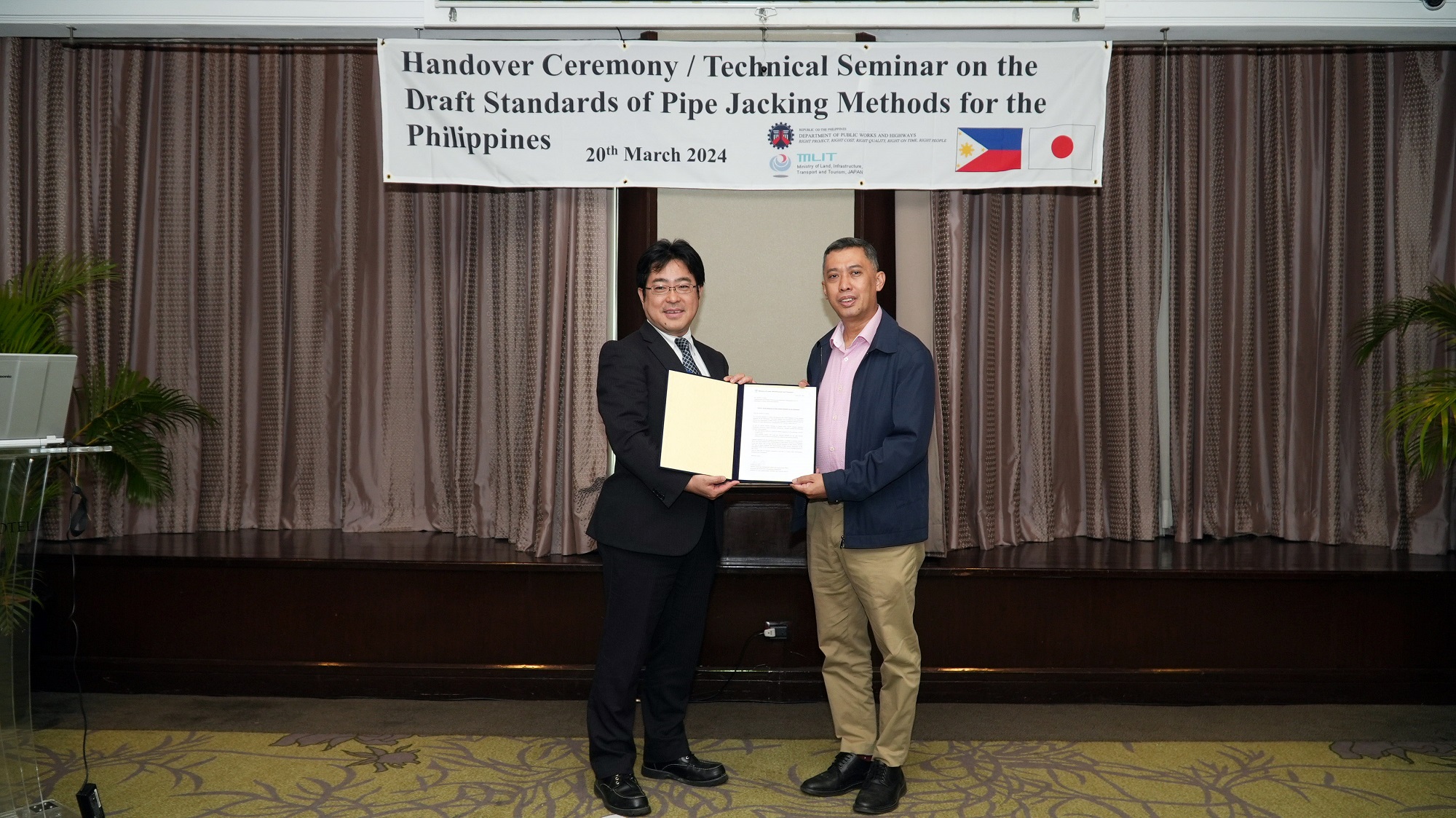
In a bid to enhance sewerage infrastructure and foster bilateral collaboration, the Department of Public Works and Highways (DPWH) participated at the seminar on the sewerage sector and a handover ceremony of the draft Pipe Jacking Standards for the Philippines organized by the Ministry of Land, Infrastructure, Transport and Tourism (MLIT) of Japan.
DPWH Bureau of Equipment Director Toribio Noel L. Ilao, on behalf of Secretary Manuel M. Bonoan, thanked the Japanese delegates, emphasizing the importance of such collaborations in advancing infrastructure development in the Philippines.
The event held on March 20, 2024, at Diamond Hotel Manila, was also attended by DPWH Bureau of Research and Standards Assistant Director Juliana D. Vergara, DPWH Bureau of Construction Assistant Director Melrose I. Pailma and DPWH Unified Project Management Office- Flood Control Management Cluster Project Manager Jerry A. Fano among others, and representatives from the Local Water Utilities Administration (LWUA).
Central to the agenda was the introduction of Japanese long-distance pipe jacking technology, aimed at providing technical guidance and sharing good practices in its application.
Pipe Jacking, or micro tunneling, is a trenchless method used to install underground pipelines without extensive excavation. It involves driving a prefabricated pipe through the ground using hydraulic jacks.
It is commonly used for installing sewer, water, and utility pipelines in urban areas, minimizing disruption to surface activities and reducing environmental impact.
This initiative aligns with the commitment made at the Asia Wastewater Management Partnership (AWaP) General Assembly in August 2023 to enhance the adoption of the pipe jacking method among participating nations.
In support of fostering bilateral collaboration, MLIT extended its assistance in formulating the draft pipe jacking standards for the Philippines during the Japanese fiscal year 2023.
In his remarks, Director Nishi Shu of MLIT emphasized the potential of the pipe jacking method in enhancing the Philippine sewerage system.
He highlighted Japan's success in utilizing this technology and expressed optimism about its applicability in improving sanitation and environmental sustainability in the Philippines.
Recognizing the benefits of this innovative approach, DPWH delegates showed interest in exploring its feasibility and integration into upcoming infrastructure developments, especially in flood control initiatives.
“With the introduction of Japanese expertise and the establishment of tailored standards, the Philippines is poised to benefit from enhanced sewerage systems and improved wastewater management practices, contributing to sustainable urban development and environmental preservation,” said Director Ilao.
